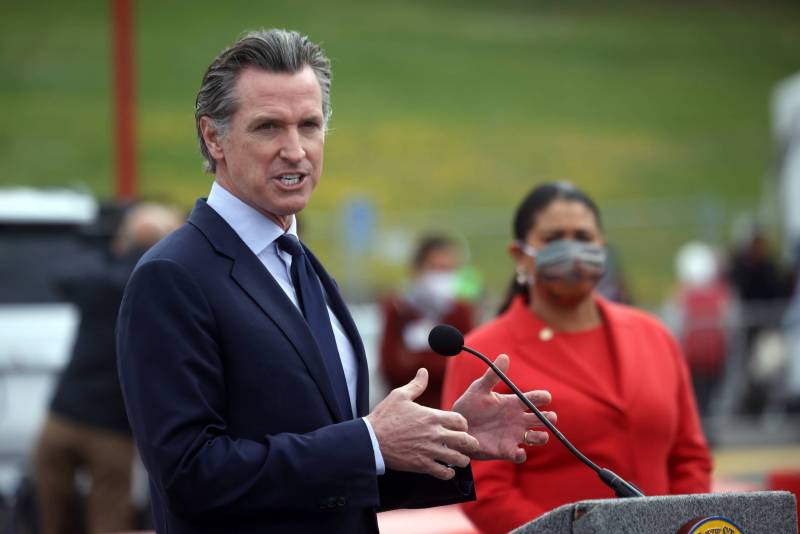Amid an uptick in COVID-19 cases and hospitalizations, California Gov. Gavin Newsom announced Monday that health care workers and state employees must be vaccinated or undergo weekly testing and wear masks.
Employees of hospitals, nursing homes, dentists’ offices, doctors’ offices and other health care settings will have to comply with the requirements by Aug. 23. In addition, all employees of state agencies will be subjected to a verification process that will be mostly in place by Aug. 2.
Short of a vaccination mandate, the new policy comes as the delta variant has become the dominant strain in California — approximately 80% of the COVID-19 cases sequenced were of the delta type, according to the state. Experts say the delta variant is highly contagious and poses a serious threat to unvaccinated people.
More than 3,000 people infected with COVID-19 are hospitalized in California, which is comparable to late October 2020, before the vaccine was available.
“We are at a point in this pandemic where individuals’ choice to not get vaccinated is now impacting the rest of us in a profound, devastating and deadly way,” Newsom said during his announcement.

